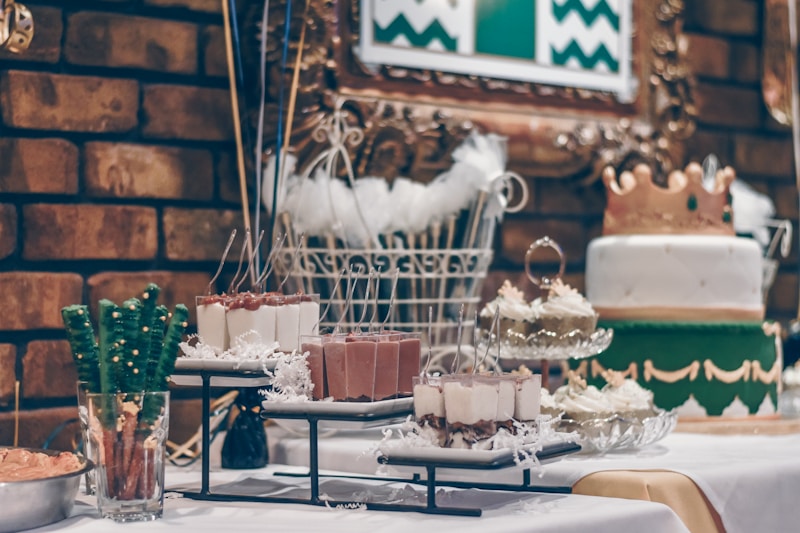Crafting a Unique Cultural Wedding Experience
In today's world, where individualism is celebrated and diverse cultures are increasingly intermingling, couples have more opportunities than ever to craft a unique cultural wedding experience. Celebrating a wedding that reflects the rich tapestry of one or both partners' cultural heritage not only makes the event special but also pays homage to families, traditions, and shared values. This article delves into various aspects of planning a culturally rich wedding, including ideas, tips, and common questions couples may have.
Understanding the Importance of Cultural Weddings
Weddings are a significant milestone in a couple's life, representing love, commitment, and the beginning of a shared journey. However, cultural weddings encompass more than just the union of two individuals; they embody traditions, familial connections, and age-old practices, creating an atmosphere filled with meaning and significance.
Crafting a unique cultural wedding experience involves integrating elements from one or both partners’ cultures. This could include traditional attire, ceremonies, music, food, and decorations, all of which play vital roles in reflecting cultural heritage.
Key Elements to Consider
When planning a culturally infused wedding, several elements should be taken into account to ensure the event is a true representation of the couple’s background.
1. Venue Selection
The choice of venue can set the tone for your wedding. Consider locations that have historical significance or natural beauty, such as:
| Beach |
| Garden |
| Historic Mansion |
| Religious Site |
Choosing a venue that reflects your culture can enhance the experience and provide a stunning backdrop for your celebration.
2. Traditional Attire
Wearing cultural attire during the wedding can be a beautiful way to honor tradition. Research your culture's traditional clothing and consider customizing your outfits to incorporate modern elements. For instance, if one partner is from India, wearing a traditional lehenga or sherwani can add authenticity to the ceremony.
3. Authentic Cuisine
Food is an integral part of any wedding, and a cultural wedding is no exception. Embrace the flavors of your heritage by serving traditional dishes. You can also create a fusion menu that includes both partners' favorite cuisines. Hiring a caterer who specializes in cultural cuisine may enhance the authenticity of the food served.
4. Cultural Ceremonies and Rituals
Infusing your wedding with cultural rituals adds depth and meaning. These practices could include:
- Lighting a unity candle
- Traditional dances
- Ritual blessings from family
- Handfasting or tying the knot in a literal sense
Engaging in these traditions not only enriches the experience for you but also allows your guests to gain insights into your unique heritage.
5. Decorations
Utilize decor that reflects your culture. This can range from specific colors, flowers, and symbols that hold significance to using textiles that narrate your story. For example, incorporating symbols or motifs from your culture into table settings can create an immersive atmosphere.

Combining Two Cultures
For inter-cultural couples, blending traditions can create a unique and respectful celebration. Here are some tips for successfully combining two cultures:
- Communication: Discuss with your partner which traditions are most important. Respecting each other's backgrounds is crucial.
- Research: Learn about each other's cultures' significant wedding customs to create harmony in the event.
- Involve Family: Seek input from family members on familial traditions that should be included.
By embracing both cultures, you create a rich experience for yourselves and your guests, honoring both heritages while crafting a new, shared history.
Common Questions Couples Ask
As couples embark on planning their unique cultural wedding experience, several questions often arise:
1. How do I incorporate multiple cultural elements without overwhelming the guests?
Balance is key. Choose a few significant elements from each culture to emphasize. For example, select one traditional ceremony aspect, a favorite dish from each culture, and decorations that don't clash but rather complement one another.
2. What if our families have differing expectations about the wedding?
Open dialogue is essential. Consider organizing a meeting with family members to discuss expectations and clarify plans. Compromise where necessary while maintaining your vision.
3. How can we ensure guests appreciate the cultural elements incorporated?
Provide a program or pamphlet that explains the significance of various aspects of your wedding. This can help guests understand and appreciate your cultural heritage throughout the event.
Final Thoughts and Recommendations
Crafting a unique cultural wedding experience is a rewarding journey that allows couples to honor their respective heritages while creating new shared traditions. Careful planning, open communication, and a willingness to embrace diversity will lead to a celebration that is as meaningful as it is beautiful. Remember to enjoy the process and let your unique love story shine through your wedding!
By incorporating elements from your culture, you not only make your day special but also educate and introduce your guests to facets of your background that they may be unfamiliar with, enriching their experience.
In conclusion, a culturally inspired wedding can be the perfect canvas to paint your love story, ensuring that this significant day is celebrated in a truly unique way that reflects who you are.